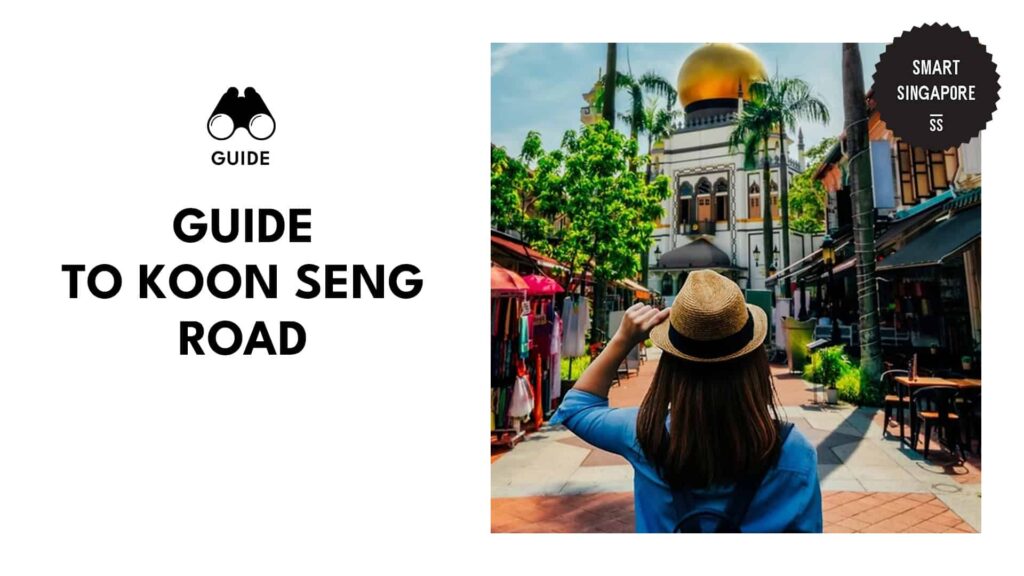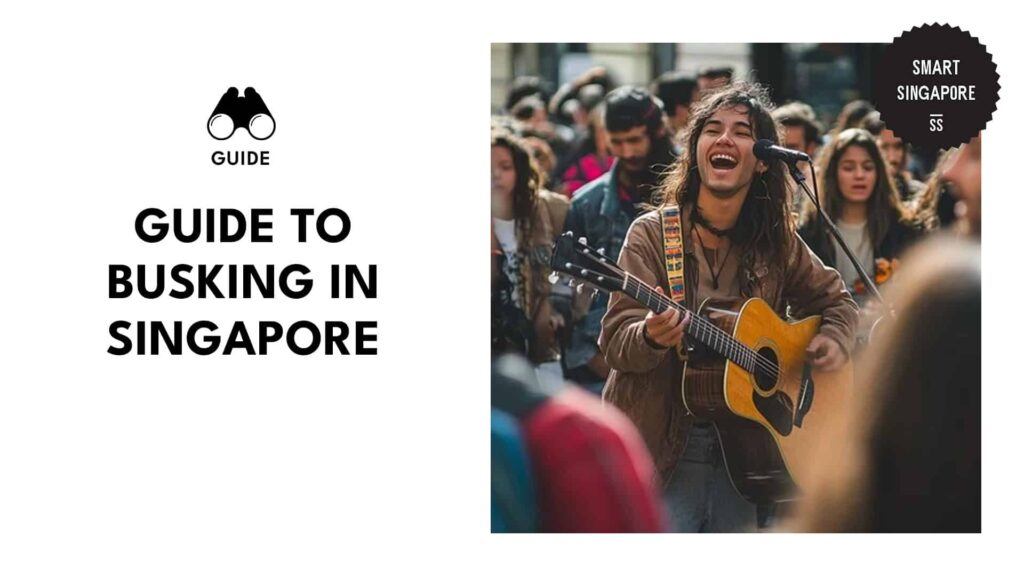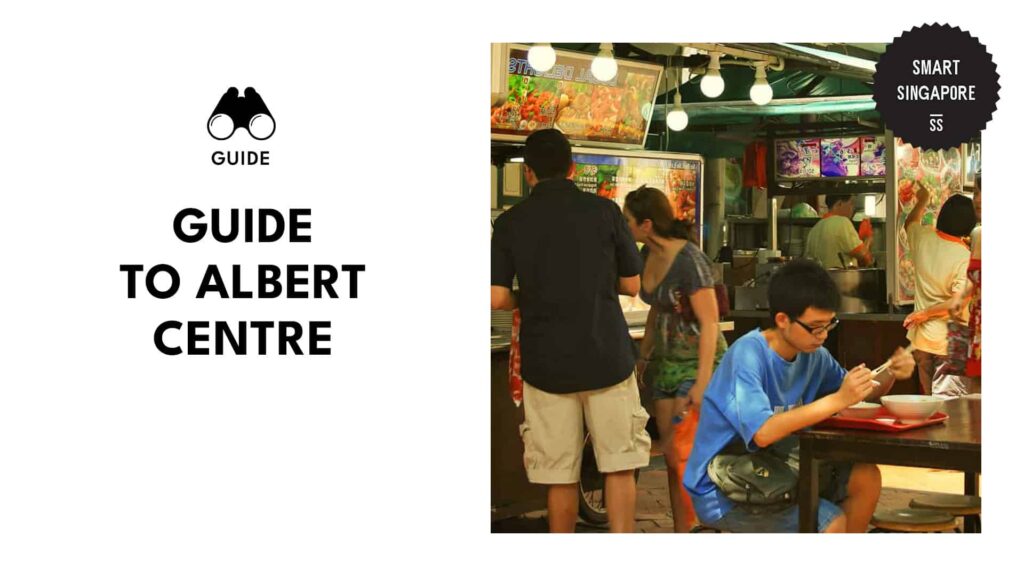Categories > Guides and Tips

Expat Life in Singapore: What’s it like to live and work here?
- Visa Requirements
- Types of Visas and How Much They Cost
- Housing in Singapore
- Where are the best neighbourhoods for expats in Singapore?
- How much does it cost to live in Singapore?
- Education in Singapore
- Where can I send my kids to school?
- Healthcare in Singapore
- How does healthcare for expats in Singapore work?
- How many hospitals are there in Singapore?
- Lifestyle in Singapore
- What are the best things to do in Singapore?
- What is the food culture like in Singapore?
- What is Singaporean cuisine?
- What is the weather and climate of Singapore?
- Transportation in Singapore
- What are the main modes of transportation in Singapore
- Can expats drive a car in Singapore?
- Can expats own a car in Singapore?
- Things About Singapore That Every New Expat Should Know
- Strict Rules and Penalties
- Curfews
- Business Incorporation
- Tax Information
- Social Clubs
- Language
- Tipping
- Pets and Animal Control
Before you hear it from anyone else, let me tell you that expat life in Singapore is simply the best. You enjoy the benefits of living and working in an economically liberal, globalised, and culturally rich country.
Now, not everything about Singapore is picture-perfect. If I’m being real, I’m trying hard not to be biased about my dear Lion City, but it’s hard not to when the conveniences and opportunities of expat life here are true to fact.
I don’t want you to base your life-changing decision on merely my (semi-biased) opinion, so I came up with a detailed guide on expat life in Singapore, including things to expect, things you should know, and important info to keep in mind before moving.
Visa Requirements

To live and work in Singapore, foreigners need to secure the correct visa to legalise their stay in the country. There are multiple types of visas you can get based on your reason for moving to Singapore.
The Ministry of Manpower (MOM) and the Immigration and Checkpoints Authority (ICA) are the two main agencies that issue visas and permits. MOM handles work and employment passes while the ICA handles permits related to citizenship and residency.
Types of Visas and How Much They Cost

In Singapore, there are 7 main types of visas and permits that a foreigner can obtain for their move to the country. Visas and permits are called “passes,” and foreigners are granted one based on their employment or business type.
Refer to the table below from GuideMeSingapore for a brief enumeration of the different types of passes you can get as an expat, their requirements, and their respective costs.
| Employment Pass Scheme | Entrepreneur Pass Scheme (EntrePass) | Personalised Employment Pass Scheme (PEP) | S Pass Scheme | |
| Designed For | Foreign company owners or full-time skilled employees | Foreign entrepreneurs and business owners who wish to incorporate or start a new business in Singapore | Skilled professionals who wish to switch employment in Singapore or don’t want to be tied down to one employer during their stay | Skilled employees or technicians employed in mid-managerial roles |
| Validity | 1 to 2 years at first issuance; renewable 3 months prior to expiration, as long as the pass holder is still employed in Singapore | 1 year, which can be renewed for another year. Only then can the EntrePass be renewed for 2 years, so long as the business is still in operation | 3 years and cannot be renewed. Holders can, however, apply for Employment Passes or Permanent Residency after the expiration of the PEP. | 1 to 2 years at first issuance; renewable 3 months prior to expiration, as long as the pass holder is still employed in Singapore |
| Requirements for Eligibility | Fixed monthly salary should be more than $4,500 Employed in an executive, specialised, or managerial role Possess either a strong employment history or a postgraduate degree | Show intention to incorporate a business in Singapore that is less than 6 months old Obtain secured funding from investors, venture capitalists, or companies Possesses Intellectual Property (IP) and is registered with a national IP institution | Show no intention of starting a business or company in Singapore An Employment Pass holder with a fixed monthly salary of $12,000, and have earned a total of at least $144,000 in the previous year of employment or Never been employed in Singapore but earned a fixed monthly salary of $18,000 in their last or current job *PEP holders must earn at least $144,000 per year throughout the whole duration of the pass. | Fixed monthly salary of $3,150 for those employed in non-finance fields; fixed monthly salary of $3,650 for those employed in financial services Application is sponsored or processed by the employer or appointed agent |
| Cost | $105 | $105 | $758 to apply, plus a $330 MOM fee | $100 |
| Eligibility for Permanent Residence | Eligible | Eligible | Eligible | Eligible |
| Miscellaneous Work Pass Scheme | Dependent Pass Scheme | Permanent Residence For Work Pass Holders | |
| Designed For | Foreign skilled workers who are employed in Singapore on short-term contracts or assignments Foreigners involved in religious work Foreign journalists | Family members (legally married spouses and unmarried children under 21 years of age) of the foreign employee in Singapore Legally adopted children | Foreign professionals in Singapore working on an Employment Pass or EntrePass who wish to apply for Permanent Residency For foreigners who wish to start a business in Singapore For foreigners working in the entertainment or talent-oriented industry |
| Validity | Up to 60 days | Up to 2 years or tied to the validity of the employed person’s work permit | Indefinite, but cannot leave Singapore unless the holder secures a re-entry permit |
| Requirements for Eligibility | Must be sponsored by an organisation based in Singapore Application must be conducted and processed by the employer or sponsor Provide a synopsis of the short-term work or assignment | The Singapore-based parent or spouse must have either an EntrePass, a PEP, an S Pass, or an Employment Pass The pass holder must have a fixed monthly income of at least $6,000 | Must be working in Singapore on an Employment Pass, S Pass, EntrePass, or PEP Clean criminal record Must possess at least 3 years of entrepreneurial experience Show intent of starting or expanding a business in Singapore with a minimum investment of $10 million or Currently running a company with an annual turnover of at least $200 million prior to application for PR Holds at least 30% of shares in the privately-held company |
| Cost | $175 | $105 | $100 |
| Eligibility for Permanent Residence | Not Eligible | Eligible; tied to the eligibility of the parent or spouse holding a pass | Eligible |
Each of these work passes has distinct requirements and validity, especially for foreigners who wish to start a business in Singapore and for those who wish to gain permanent residency.
Housing in Singapore

One of the most important things you need to prepare before moving to Singapore is to find housing. There are many housing options you can live in for your first few months up to a year before moving to a permanent home.
Singapore has many neighbourhoods offering subsidised housing (HDB flats), condos, and landed properties. HDB flats and condos are the most popular options for expats due to their lower rental fees.
Where are the best neighbourhoods for expats in Singapore?

The best neighbourhoods for expats in Singapore are Holland Village, Tanglin, Tiong Bahru, Serangoon, Bukit Timah, and Central Orchard.
These neighbourhoods are located near the Central Business District of Singapore and are easily connected via public transit. Expats enjoy convenient access to the CBD while enjoying suburban life and a slower pace near wetlands, forests, and beaches.
How much does it cost to live in Singapore?

According to Expatistan, If you’re living by yourself, the typical monthly living expense for expats in Singapore is from $3,500 to $5,500.
If you’re with family members (spouse and two children), your monthly living expenses can go upwards of $6,000 to $10,000 a month.
Most of your monthly expenses will go towards rent, with condos near the CBD costing up to $4,000 a month. To save, consider residential areas outside the city centre, where rent ranges from $1,500 to $2,500 a month.
Education in Singapore

Children of expats and pass holders are allowed to enrol in both local and international schools at primary, secondary, and junior college levels, so long as they hold a Dependent’s Pass.
Those who wish to go to university or take on tertiary studies (including Dependent’s Pass holders) must secure a Student’s Pass and go through the university application process of their chosen institution.
Where can I send my kids to school?

According to the Ministry of Education, there are five main types of educational institutions in Singapore where children of expats (Dependent’s Pass holders) can enrol.
These are public schools, international schools, special needs schools, institutes of higher learning, and pre-schools.
Most expats send their children to international schools, but foreign students can also enrol in public schools by taking the Admissions Exercise for International Students (AEIS) or the Supplementary Admissions Exercise for International Students S-AEIS.
Take a look at the table below for a list of some of the best international schools in Singapore and their respective tuition fees:
| School | Year Levels | Curriculum | Tuition Fee |
| Dover Court International School | Primary to Secondary | International Baccalaureate (IB), British school system | $27,525 to $43,026 per year |
| Canadian International School | Kindergarten to Secondary | International Baccalaureate (IB), Canadian school system | $19,260 to $49,610 per year |
| Dulwich College | Nursery to Secondary | International Baccalaureate (IB), International General Certificate of Secondary Education (IGCSE), English National Curriculum | $34,690 to $54,060 per year |
| Stamford American International School | Infant Care to Secondary | International Baccalaureate (IB), College Board’s Advanced Placement (AP), Business and Technical Education Council (BTEC) | $45,670 to $52,250 per year |
| Singapore American School | Nursery to Secondary | College Board’s Advanced Placement (AP), AP Capstone Diploma | $46,530 to $61,690 per year |
Healthcare in Singapore

Healthcare in Singapore is considered one of the best in the world, so expats can be reassured that any medical attention they need during their stay is excellent and world-class.
Citizens and permanent residents enjoy universal healthcare wherein a portion of their monthly salary goes toward the Central Provident Fund. Their contributions to this fund will be used to shoulder medical fees and social services in the country.
How does healthcare for expats in Singapore work?

Healthcare for expats in Singapore, unfortunately, isn’t subsidised, as stated in the Ministry of Health.
Only permanent residents and Singaporean citizens qualify for universal health care, so expats will shoulder their own health insurance and medical fees at private hospitals.
Expats don’t contribute to the Central Provident Fund, but they can place a portion of their income into private health insurance policies provided by international insurance companies recommended by their employers or on their own.
Having personal accident insurance helps as well.
How many hospitals are there in Singapore?

On MOH’s database, there are currently 23 polyclinics, 9 community hospitals, 19 acute hospitals, and 1 psychiatric hospital in Singapore.
Aside from that, there are multiple private and public clinics that provide specialised medical services for both locals and foreigners.
These specialised practices include dental clinics, general practitioner clinics, centre-based care facilities, hospice and palliative care providers, and nursing homes.
Lifestyle in Singapore

The Singaporean way of life is simple and planned. The island nation may be a tiny tropical dot in Southeast Asia, but it’s also one of the most globalised, developed, and economically liberal countries in the world.
Living in harmony with so many ethnic communities is a norm in Singapore, so expats can expect a multitude of cultures reflected in the food, art, architecture, fashion, and customs.
What are the best things to do in Singapore?

There are plenty of things you can do in Singapore that don’t just involve visiting historical landmarks, museums, and shopping in centres like Lucky Plaza Mall. Although the island is known for all three, there’s more to it than what meets the eye!
There are sandy beaches, national parks and reserves, zoos, towering skyscrapers, temples, and heritage sites ranging from colonial forts to beautifully landscaped gardens.
Plus, because there are several ethnic enclaves in Singapore, you can expect a wide range of cultural and religious festivals to be celebrated every year. Popular examples are Chinese New Year, Mid-Autumn Festival, Deepavali, and Vesak Day.
What is the food culture like in Singapore?

Singapore’s food culture is diverse due to its many ethnic communities and cultural influences. It’s common to find a variety of Asian and Eurasian cuisines served in restaurants and eateries in one block.
The best places to taste local fare are hawker centres and large food courts with affordable stalls. Many are recognised by the Michelin Guide and other notable gastronomical associations.
What is Singaporean cuisine?

Singaporean cuisine is best described as “a little bit of every Asian and Western cuisine in every dish.” Major influences include Chinese, Malay, Indonesian, Indian, Peranakan, and Western cuisines.
Key ingredients are chillies, curries, ginger, coconut, soy sauce, tamarind, lemongrass and shrimp paste. Owing to Singapore’s tropical climate and access to the sea, many dishes are seafood-based, with some featuring beef, pork, and chicken.
What is the weather and climate of Singapore?

Singapore has a tropical climate and experiences heavy rainfall and high humidity all year round.
Like many tropical countries, it’s practically sunny for most of the year, with hot and dry seasons causing extreme heat waves and heavy downpours.
The driest months in Singapore are from February to April, with the latter usually being the warmest. January is the coolest month, with November being the wettest (rainfall can last all the way until December).
Also, average daily temperatures fall between 25 and 28 degrees Celsius, so prepare light and airy clothes for your move to the island!
Transportation in Singapore

Public transportation in Singapore is efficient and innovative. The country boasts a large transportation network.
Using the public transit system is also a cost-effective way to get around, especially if you get the SimplyGo EZ Link* pass that lets you top up and pay for rides from your phone.
*Learn more about the SimplyGo EZ Link schemes here.
What are the main modes of transportation in Singapore

The main modes of public transit in Singapore are the Mass Rapid Transit System (MRT), the Light Rail Transit System (LRT), buses, and taxis.
Among all the modes of transport, the MRT and LRT are the most common and widely used transport systems.
All transportation systems are managed and regulated by the Land Transport Authority.
Can expats drive a car in Singapore?

Yes, expats can drive a car in Singapore so long as they are 18 years old and above, hold a Student, Employment, Dependent’s, or EntrePass, and possess a foreign driver’s licence.
Foreigners can only drive with their foreign licence for up to 12 months. Beyond that time frame, you’ll need to secure a Singaporean driver’s licence.
For foreigners who recently obtained permanent resident or citizen status, any foreign driver’s licence must be converted to a Singaporean one within three days of obtaining a change of status.
Can expats own a car in Singapore?

Yes, foreigners can own a car in Singapore under certain terms and conditions. Foreigners will first need to secure a Certificate of Entitlement (COE), which entails bidding and paying a premium.
Premiums can range between $100,00 and $200,000, depending on the type of car you get. Once you get a COE, you can legally register your car in Singapore for 10 years.
Things About Singapore That Every New Expat Should Know
Even if you’ve visited the island before as a tourist, there are some things that locals like us want you to know about the Singaporean way of life.
Here are a few things we think that every expat should know before moving to Singapore.
Strict Rules and Penalties

Ever heard the phrase, “Singapore is a fine city?” It refers not just to its quality of life for expats but also to the penalties for not following its strict and somewhat odd rules.
For example, you can get fined up to $1,000 if you forget to flush a public toilet or drink alcohol past 10:30 pm in Liquor Control Zones.
You could also face some jail time if you’re caught littering, importing chewing gum, or connecting to someone else’s Wi-Fi without them knowing.
Curfews

As mentioned earlier, Singapore has Liquor Control Zones (like Geylang and Little India) where drinking alcohol is only allowed until 10:30 pm on Fridays. Subsequently, no one is allowed to consume alcohol in public!
Business Incorporation

Incorporating or starting a new business in Singapore is swift, efficient, and easy. In fact, it usually just takes about 15 minutes to complete the whole process (but with some applications lasting a little over a few days).
People who want to start a business can simply apply and register their company on the Accounting and Corporate Regulatory Authority’s website. You can also do so with the help of a firm.
Requirements are minimal but may vary depending on the type of business you wish to register.
Tax Information

There are two ways a foreigner can be taxed when they work in Singapore: as a resident or non-resident.
Resident foreigners pay tax rates between 0% and 22% depending on their income. Expats earning an income above $320,000 a year may have to pay taxes with rates up to 24%.
Meanwhile, non-resident expats pay a flat rate of 15% for income tax. Non-residents who earn an income outside of their regular jobs such as real estate and pension are subject to a tax rate of 22%.
Social Clubs

Thinking about how and where to make friends in Singapore? If you’re not the type to go pub hopping and striking up conversations at the bar, social clubs are a great way to make connections, meet new people, and enjoy exclusive benefits as a member.
Many social clubs offer monthly or yearly memberships to both locals and foreigners. Country clubs, beach clubs, and sports clubs are some of the most popular options for expats to pick up a hobby and meet new people.
A few notable social clubs that are expat-friendly are:
- The Swiss Club
- Singapore Recreation Club
- The Hollandse Club
- Raffles Town Club
- Marina Country Club
- The British Club
- Orchid Country Club
- American Club Singapore
- Mandala Club
- 67 Pall Mall
Language

English is an official language in Singapore, but so is Malay, Chinese, and Tamil. You’ll hear a bunch of people speaking several different languages on the island, but for the most part, English is the primary medium.
Singaporeans, however, have their own way of speaking English called Singlish, a language that blends Singaporean slang and English. Some phrases are hard to pick up at first, but if you try to learn a bit about Singlish, you should be able to understand it.
Tipping

Although thoughtful, tipping is not a norm in Singapore and isn’t always received well among locals. In fact, taxi drivers are known to refuse tips, so don’t try letting them keep the change.
If you’re dining at a restaurant, however, you can still tip a server or waiter. Just know that a 10% service charge plus a 7% tax is already included in your final bill, so a tip to the servers is a bit over the top.
Pets and Animal Control

This may sound a little unique to some pet-loving foreigners, but Singapore actually has a strict animal and pet control system that limits the number of pets you can bring into the country or adopt in Singapore.
The allowable number and sizes of pets you can bring home are dependent on your current household size. All pets need to be vaccinated and microchipped prior to their move to Singapore.
Also, you’re only allowed to keep a maximum of three pets on a residential property. Cats, unfortunately, are not allowed in flats!





